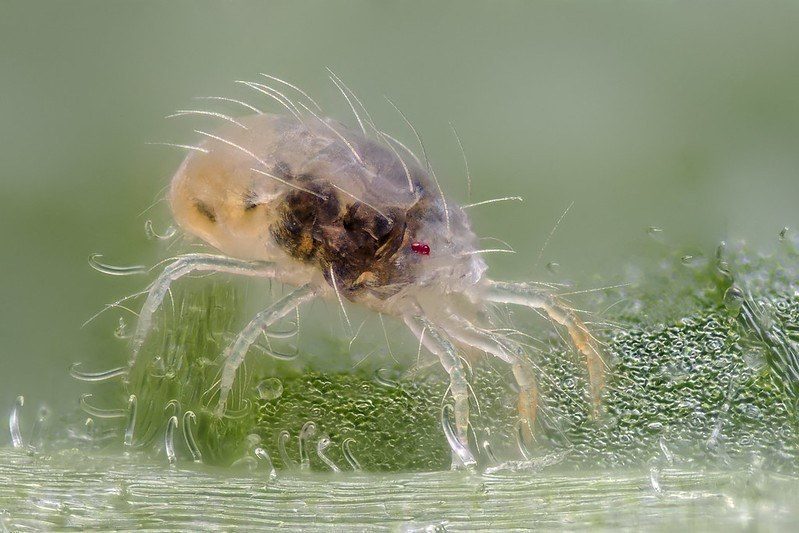Press release Researcher discovers how mites manipulate plants. Insight offers opportunities for new type of pest control.
Spider mites can suppress the natural defense system of plants by manipulating plant genes with a protein found in their saliva. This enables them to reproduce more quickly. During her PhD Joséphine Blaazer unraveled the underlying mechanism, which offers perspectives for a new form of pest control. Via mutations, breeders could make the vulnerable plant genes inaccessible to the mites. This is good news for growers of tomatoes, cucumbers and strawberries grown in greenhouses, because spider mites can cause a great deal of damage.

Saliva breaches the plant's firewall
Plants have a natural defense system against pests, but due to years of plant breeding, that defense system now works less well. One of the pests found in the field and in greenhouses is the spider mite. Because spider mites are very small and reproduce at lightning speed, it is extremely difficult to notice them - in time! Moreover, spider mites suppress the natural defense system of plants, making them even more susceptible. How this works exactly was investigated by Joséphine Blaazer during her doctoral study under Professor Merijn Kant of the University of Amsterdam and the guidance of Wannes Dermauw of ILVO.
Specifically, Blaazer investigated the function of the saliva protein SHOT2b in spider mites. SHOT2b turned out to have a special interaction with an important plant protein, MLK4. This plant protein is important for plant growth and flowering, but also regulates the production of toxins against mites. SHOT2b in turn reduces the production of some of those toxins.
You would think that spider mites would seek out plants without MLK4, because they have no toxins to throw into the fray. Curiously, Joséphine Blaazer discovered that the mites lay just fewer eggs on plants without MLK4. She investigated why this was the case and discovered that the mite's salivary protein can most likely hijack and reprogram the MLK4 protein, weakening the plant and allowing the mite to reproduce better.
Security against hackers
So can't we just turn off MLK4 in plants? No, this gene is needed for proper growth and flowering. But the results of the research do offer potential for making plants more resilient in a different way: through targeted mutations in the MLK4 plant gene, the interaction with the spider mite protein SHOT2b could be broken. The MLK4 gene would still be there, but the spider mite protein SHOT2b would no longer be able to recognize it, and thus would not be able to turn off the plant's defenses to make itself stronger.
"This is a very interesting route to strengthen the natural defense system of plants, but further research is certainly needed before this can be applied in practice. In wheat, there is already a success story where plants were made more resistant to mildew by modifying a susceptibility gene (also called S-gene)" says supervisor Wannes Dermauw (ILVO). "As far as spider mite infestations in Flanders are concerned, we should mainly focus on making tomatoes, cucumbers and strawberries more resistant. Cultivation of these mainly takes place in greenhouses, which is an ideal microclimate for spider mites."


